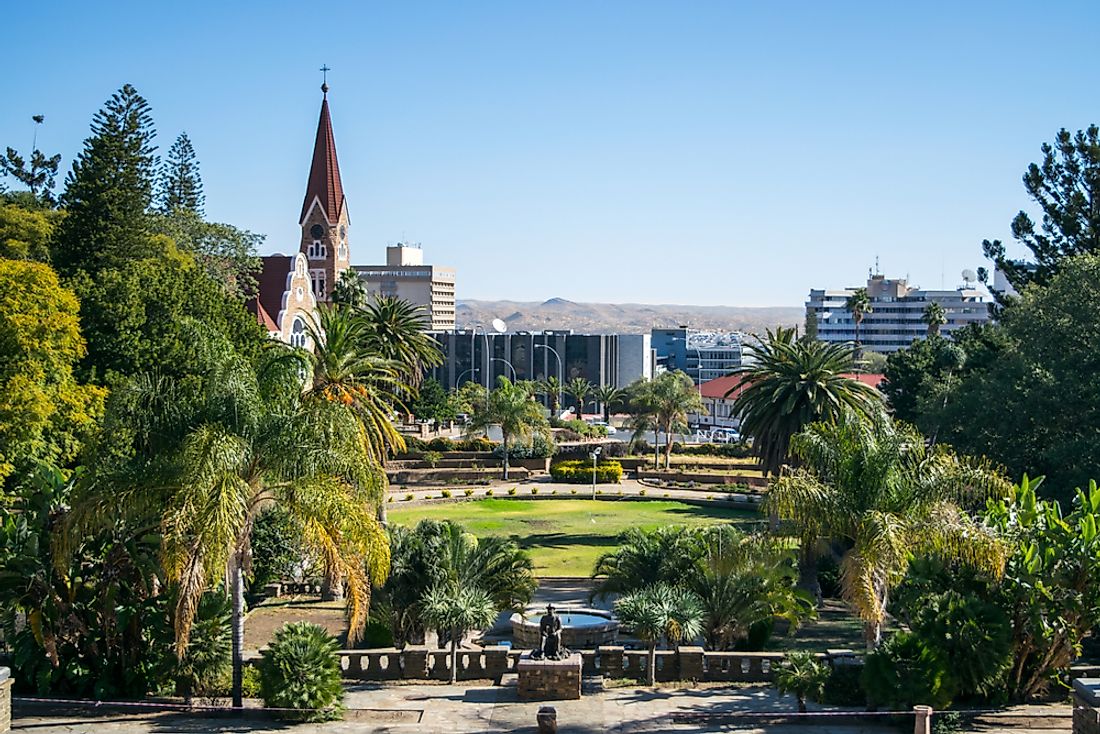What Is The Capital Of Namibia?

The southern African nation of Namibia occupies an area of 825,615 square km. The population of the country is 2,606,971 (as per the 2017 census). The population density is 3.2 persons per square km. Angola and Zambia are located to the north of Namibia. South Africa forms the eastern and southern borders of the nation and Botswana is also located to the east. The Atlantic Ocean borders the country to the west. The capital of Namibia is Windhoek.
What Type Of Government Does Namibia Have?
Namibia is a semi-presidential representative democratic republic. Here, the President of the state serves the dual role of the head of state and government. The country also has a Prime Minister who is appointed by the President of Namibia to assist and advise the President in running the government. The Constitution separates the powers of the government into three branches, the Executive, Legislative, and Judiciary. The President and the government carries out the executive functions. The legislative branch of the government comprises of the National Assembly and the National Council. A system of courts makes up the judicial branch of Namibia’s government.
What Is The Capital Of Namibia?
Windhoek serves as the capital city of Namibia. It is also the most populous city in the country. Windhoek encompasses an area of 5,133 square km and has a population of around 325,858. The population density of the city is 62.8 persons per square km.
Where Is The Capital Of Namibia Located?
Windhoek is located at an elevation of 5,600 ft above sea level in the Khomas Highland plateau area. The position of the city corresponds to almost exactly the geographical center of Namibia. The surroundings of the town are dry and arid. However, the city itself is well protected from the extremely dry winds by a chain of hills. Many hot springs are found in the region where Windhoek is located.
History Of Windhoek
The area that is now Windhoek was originally the home of the Herero and the Khoekhoe peoples. The Germans claimed the site of the present town in 1890. Later, the settlement came under the control of the South African government when the South African forces annexed it in 1915 on behalf of the British Empire. During the rule of South Africa, the development of the city came to a near standstill. Things improved, however, following World War II as more capital became available for developmental work. Finally, when Namibia emerged as an independent nation in 1990, Windhoek became the capital of the sovereign nation. Today, Windhoek is also the provincial capital of Namibia’s Khomas Region and is undergoing an accelerated rate of development and growth.
Role Of Windhoek As The Capital City Of Namibia
As the seat of the national government of Namibia, Windhoek hosts the major government offices, ministries, and departments. Located just north of the Robert Mugabe Avenue is Tintenpalast, the meeting venue of both the chambers of Namibia’s Parliament. The official residences of the President of Namibia and other important government officials are also located here. Besides being the political capital of the country, Windhoek is also the economic, social, and cultural center of Namibia. All major Namibian educations, cultural, governmental, and national institutions are headquartered there.











